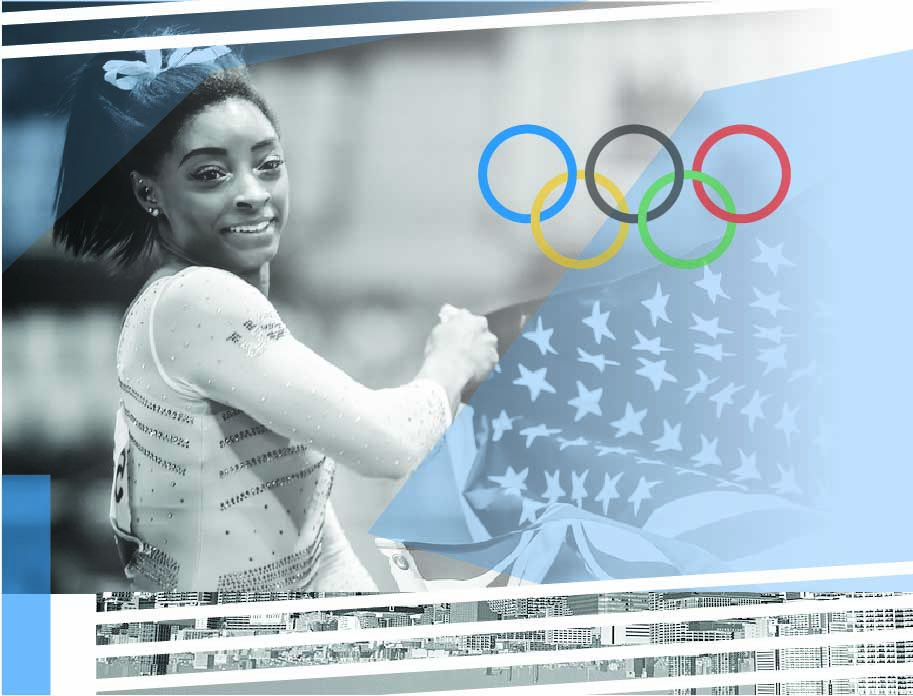
Dr Karen Hartman
Associate Professor in the Department of Communication, Media, and Persuasion at Idaho State University, and she serves as the Executive Director of the International Association for Communication and Sport. Her research analyzes how language and public relations efforts frame athletes, institutions, and laws.

Section 1: Tokyo & Mega-Events
- Public relations as the key in the 2020 Tokyo Olympic and Paralympic Games
- Tokyo 2020, East Asian geopolitics and Olympic diplomacy
- Anti-sex beds? Fake news! : why this video went massively viral?
- Power sharing: Olympic sponsorship and the athlete’s personal brand
- Host city and mega-events: Olympic legacy in Japan
- The rise of critical consciousness in Japan: An intangible and unintended legacy of the Tokyo 2020 Olympic Games
- The soft power of the Olympics in the age of Covid 19
- Tokyo 2020 Olympic Games, nationalism, identity and soft power
- The typhoon games
- Environmental leadership showcased in the Olympic Games
- Simone Biles and prioritizing athlete well-being
- How the female athletes of the Tokyo Olympics are reframing the way we think about motherhood
- Deliver a medal or apologize: A daunting task imposed on Japanese Olympians
- What happened to Rule 40 at Tokyo 2020?
- Cultural programming at Tokyo 2020: the impossible Olympic festival city?
- A green Olympic legacy for future generations?
- Lessons from Tokyo: the impact of the Paralympics in Japan
- Let’s play! Inspiring an inclusive mindset with a hands-on Paralympic experience for children and teenagers in Japan.
- The Olympic & Paralympic sponsorship without category exclusivity: Background of sponsorship exclusivity in Olympic and Paralympic Games (OPG)
- Counting cases, counting medals: Containing the Olympic contagion during the Tokyo Games
- The Olympic Games and ambush marketing via social media
- Pride and burden of striving for perfection at the Olympics
Three days before the opening ceremonies of the 2020 Olympics, Reuters reported that the Tokyo 2020 organizing committee would consider a last-minute cancellation if Japan’s COVID-19 cases continued to rise. The statement contradicted the International Olympic Committee’s (IOC) repeated claims that canceling was not an option. Nevertheless, the organizing committee’s suggestion that public health could prevail garnered positive international publicity for a potential exercise of caution and prudence. The IOC ought to have heartily thanked the organizing committee for the last second image boost for, up until that point, very little had been done to reassure the public that the Olympic Games should proceed.
Polls repeatedly suggested that Japanese citizens wanted the games called off, and depending on how the question was worded, 50-80% of Japanese people were opposed to the games being hosted in Tokyo. Several regional papers echoed the call for a cancellation, including the Asahi Shimbun newspaper, a leading Japanese media outlet. As critics became more vocal, and case numbers rose, even a former Olympian medalist spoke up. Kaori Yamaguchi, an executive member of the Japanese Olympic Committee and a judo medalist, said that Japan had been “cornered” into hosting during the pandemic, asking, “What will these Olympics be for, and for whom? The Games have already lost meaning and are being held just for the sake of it.” Public opinion, even among the most devoted, was at a low point.
Then came the expert public relations feint. On July 20, mere days before the 2020 Olympic games started, Toshiro Muto, the Tokyo 2020 organizing committee’s chief, and Seiko Hashimoto, the organizing committee’s president, registered their measured, thoughtful concern. Asked whether the games could still be canceled, Muto did not rule it out and noted that the committee would “continue discussions if there [was] a spike in cases.” Hashimoto acknowledged the public’s anxiety and emphasized safety and security. Their comments were picked up by global media outlets such as the BBC, CNBC, Forbes, Kyodo News, CBS News, National Public Radio, CNN, the Wall Street Journal, Bleacher Report, the Associated Press, ESPN, the Indian Express, and others. Headlines like “Tokyo 2020 chief Muto does not rule out 11th-hour cancellation of Games” created goodwill that had been hard to come by in the controversial lead-up to the games.
The organizing committee’s messaging, compared to the IOC’s insistence that the games would go on no matter what, achieved two things. First, the organizing committee’s messaging offered an appropriately framed message that afforded a deft strategic public relations touch. The dissemination of such openness to canceling the Games primed publics by exhibiting leadership with careful prudence. The organizing committee’s comments gave the illusion of an appropriate public relations response by portraying the Olympic governing structure as an organization ready to adjust depending on public health and community concern.
Second, it allowed the organizing committee to distance itself from the IOC. When the Games left town, how would the local organizers who remained deal with the fall out and nurture damaged relationships with Japanese residents? For months the organizing committee had to negotiate as a middle group between an adamant IOC and a fearful, frustrated public. A common crisis communication strategy is to distance an organization from a nefarious act or employee. Distancing attempts to focus more attribution and blame on a different party. In this case, the IOC repeatedly downplayed health and safety concerns in the lead up to the Games and emphasized that public opinion would not force a cancellation. The IOC president, Thomas Bach, stated there was zero risk of athletes passing on the virus to Japanese residents, even as cases in Tokyo hit a six-month high.
Conversely, Muto’s comments and his perceived openness to canceling the Games set up a contradiction with the inflexible IOC, helping to distance the committee from the IOC and connect them more closely with their stakeholders. These moves could help alleviate discord with Japanese residents after the Games end as well, as they prioritized concern for Japan, their most immediate stakeholders, over the IOC.
The organizing committee showed an ethic of care and made a valiant public relations effort. One cannot assess whether the organizing committee’s efforts were a phony measure to conceal that the games would go on or an honest attempt to listen to stakeholders and prioritize public health. Regardless, the public relations effort succeeded with a final message before the opening ceremonies started by soliciting international attention. If but for a brief moment, it really seemed as though the Olympics were responsive to public opinion.
The quick 181 day turnaround from Tokyo to the 2022 Beijing Winter Olympics presents another large-scale logistical, financial, and, most likely, public health conundrum. Tokyo’s organizing committee, however, shows there is a space for effective public relations strategies. Their efforts to listen to stakeholders, maintain an ethic of care, and consider public opinion are foundational and efficacious public relations tactics. The IOC would be smart to consider using these, but if they do not, then the Beijing organizing committee can find a way to distance itself from the larger governing structure and help nurture relationships with their local stakeholders as the lead up to the next Olympics begins.

